How to Manage Stress and Anxiety in School-Going Children
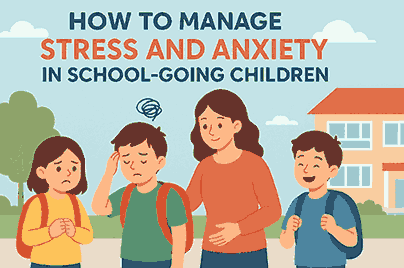
Introduction
School life brings joy, friendships, and learning opportunities. However, it can also become a source of stress and anxiety for many children. Academic pressure, peer competition, exams, and even social challenges sometimes feel overwhelming. While a little stress motivates children to perform better, excessive stress can harm their emotional well-being and academic growth.
Parents and teachers play a vital role in helping children cope. By understanding the causes of stress and guiding them with healthy strategies, adults can build resilience in children and prepare them for challenges ahead.
Understanding Stress and Anxiety in Children
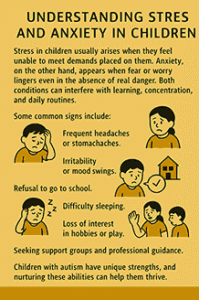
Stress in children usually arises when they feel unable to meet demands placed on them. Anxiety, on the other hand, appears when fear or worry lingers even in the absence of real danger. Both conditions can interfere with learning, concentration, and daily routines.
Some common signs include:
-
Frequent headaches or stomachaches.
-
Irritability or mood swings.
-
Refusal to go to school.
-
Difficulty sleeping.
-
Loss of interest in hobbies or play.
Recognizing these signals early helps parents and teachers provide timely support.
Academic Pressure and Expectations
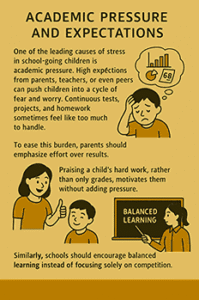
One of the leading causes of stress in school-going children is academic pressure. High expectations from parents, teachers, or even peers can push children into a cycle of fear and worry. Continuous tests, projects, and homework sometimes feel like too much to handle.
To ease this burden, parents should emphasize effort over results. Praising a child’s hard work, rather than only grades, motivates them without adding pressure. Similarly, schools should encourage balanced learning instead of focusing solely on competition.
Peer Pressure and Social Challenges
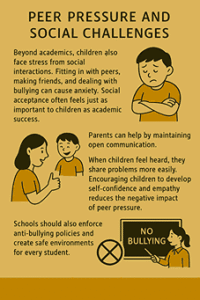
Beyond academics, children also face stress from social interactions. Fitting in with peers, making friends, and dealing with bullying can cause anxiety. Social acceptance often feels just as important to children as academic success.
Parents can help by maintaining open communication. When children feel heard, they share problems more easily. Encouraging children to develop self-confidence and empathy reduces the negative impact of peer pressure. Schools should also enforce anti-bullying policies and create safe environments for every student.
Managing Exam Stress
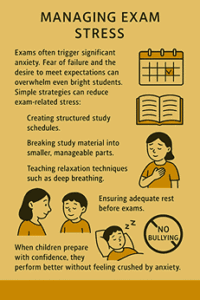
Exams often trigger significant anxiety. Fear of failure and the desire to meet expectations can overwhelm even bright students. Simple strategies can reduce exam-related stress:
-
Creating structured study schedules.
-
Breaking study material into smaller, manageable parts.
-
Teaching relaxation techniques such as deep breathing.
-
Ensuring adequate rest before exams.
When children prepare with confidence, they perform better without feeling crushed by anxiety.
Building Healthy Routines
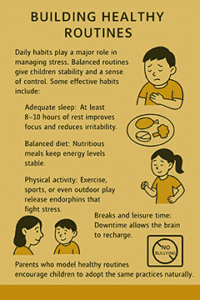
Daily habits play a major role in managing stress. Balanced routines give children stability and a sense of control. Some effective habits include:
-
Adequate sleep: At least 8–10 hours of rest improves focus and reduces irritability.
-
Balanced diet: Nutritious meals keep energy levels stable.
-
Physical activity: Exercise, sports, or even outdoor play release endorphins that fight stress.
-
Breaks and leisure time: Downtime allows the brain to recharge.
Parents who model healthy routines encourage children to adopt the same practices naturally.
Encouraging Emotional Expression
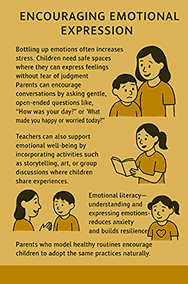
Bottling up emotions often increases stress. Children need safe spaces where they can express feelings without fear of judgment. Parents can encourage conversations by asking gentle, open-ended questions like, “How was your day?” or “What made you happy or worried today?”
Teachers can also support emotional well-being by incorporating activities such as storytelling, art, or group discussions where children share experiences. Emotional literacy—understanding and expressing emotions—reduces anxiety and builds resilience.
Relaxation Techniques for Children
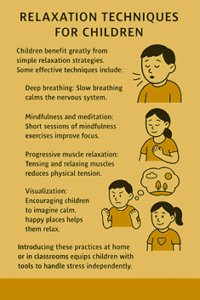
Children benefit greatly from simple relaxation strategies. Some effective techniques include:
-
Deep breathing: Slow breathing calms the nervous system.
-
Mindfulness and meditation: Short sessions of mindfulness exercises improve focus.
-
Progressive muscle relaxation: Tensing and relaxing muscles reduces physical tension.
-
Visualization: Encouraging children to imagine calm, happy places helps them relax.
Introducing these practices at home or in classrooms equips children with tools to handle stress independently.
Role of Parents and Teachers
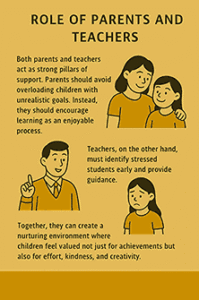
Both parents and teachers act as strong pillars of support. Parents should avoid overloading children with unrealistic goals. Instead, they should encourage learning as an enjoyable process. Teachers, on the other hand, must identify stressed students early and provide guidance.
Together, they can create a nurturing environment where children feel valued not just for achievements but also for effort, kindness, and creativity.
When to Seek Professional Help
Sometimes stress and anxiety may persist despite efforts at home and school. If a child consistently shows signs such as withdrawal, panic attacks, or declining academic performance, parents should consider professional help. Child psychologists and counselors provide therapies that teach coping skills and emotional regulation. Seeking help early prevents long-term emotional difficulties.
Conclusion
Stress and anxiety are natural parts of growing up, but when left unmanaged, they can harm a child’s health and happiness. By balancing academic expectations, promoting emotional expression, building healthy routines, and teaching relaxation techniques, parents and teachers can empower children to cope with challenges confidently.
The goal is not to eliminate stress completely but to help children manage it in healthy ways. With support, encouragement, and guidance, school-going children can thrive academically, socially, and emotionally.


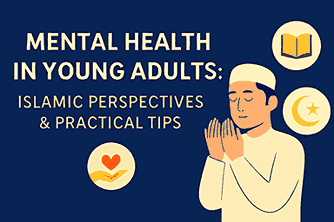


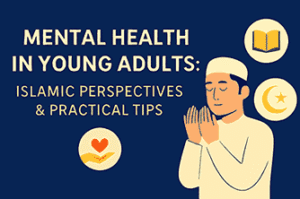

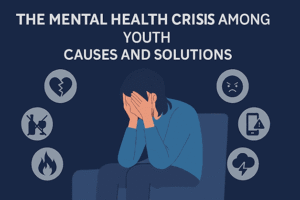
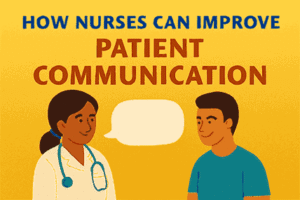




Post Comment